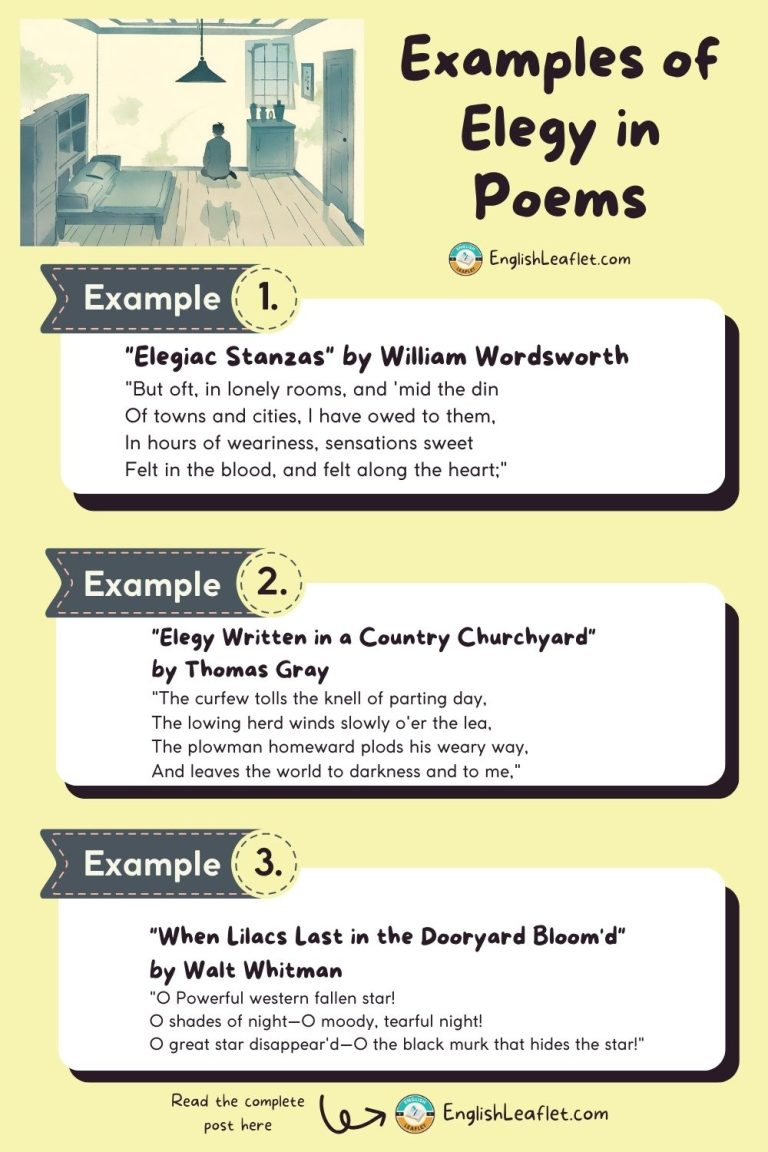The elegy poetry workshop offers a unique, heartfelt approach to writing, inviting participants to explore their emotions and remember those they have lost. In the context of the ongoing Harvard Poetry Project, this workshop serves as a meaningful platform for expressing grief and creating community connections through poetry. As individuals come together to reflect on their experiences during the pandemic, the workshop fosters a safe space for sharing elegies that articulate profound feelings of loneliness and sorrow. Led by esteemed poets Karen Elizabeth Bishop and David Sherman, attendees not only craft their own elegies but also dive into the rich tradition of poetry elegy that warms the heart and eases the spirit. These creative writing workshops are not just about putting words on paper; they are about making sense of our deepest emotions while celebrating the collective nature of grief.
Delving into the realm of commemorative verse, the workshop on elegiac poetry emphasizes communal expression and the cathartic process of mourning. This gathering, part of a broader initiative to enhance public engagement with creative writing, beckons those seeking solace in words amidst the backdrop of the pandemic’s emotional toll. Poets and non-poets alike are encouraged to voice their sentiments, reflecting on love and loss through personal experiences. The concept of elegy transcends mere lamentation; it connects participants in shared vulnerability, allowing them to navigate the complexities of their feelings in a supportive environment. By embracing this powerful form of artistic expression, the elegy workshop transforms grief into a collective journey of healing and remembrance.
Exploring the Elegy Poetry Workshop
The Elegy Poetry Workshop, part of the broader Elegy Project, offers a unique space for creative expression, especially amid the backdrop of the recent global pandemic. These workshops gather individuals from diverse backgrounds, encompassing poets and non-poets alike, to engage in the solitary yet communal act of writing elegies. This intimate environment enabled attendees to explore themes of loss and remembrance, tapping into the primal impulses shared by humanity, as articulated by Mary Walker Graham in her reflections on elegy as a fundamental poetic form.
During these workshops, participants are encouraged not only to write but also to read and share their elegies, fostering a supportive community atmosphere. The collaborative process allows individuals to understand that their experiences of grief and longing are universally shared, thus reducing the loneliness associated with mourning. With expert guidance from experienced poets like Karen Elizabeth Bishop and David Sherman, attendees gain valuable insights into the craft of poetry while finding comfort in the collective experience of loss.
The Role of Community Poetry Workshops in Healing
Community poetry workshops, such as the Elegy Poetry Workshop, play a crucial role in facilitating artistic growth and emotional healing. In times of isolation, particularly during the pandemic, these workshops address the human need for connection and interaction through the medium of poetry. They serve as a reminder that creative expression is not confined to the pages of published works but is a living, breathing part of community life. By allowing individuals to engage with poetry collectively, these workshops encourage participants to articulate their feelings and experiences.
Furthermore, these workshops emphasize inclusivity, inviting individuals from varied backgrounds to explore their creative voices. This approach helps demystify poetry, making it accessible to everyone, reinforcing the idea that everyone has a story worth telling. As participants engage with both the writing and remarkable works from others, they find inspiration that propels their creativity further, allowing them to navigate their emotions through the art of elegy.
The Therapeutic Value of Poetry in Times of Grief
The therapeutic value of poetry, especially elegies, cannot be overstated in contexts of personal loss and communal grief. Poetry has a unique way of encapsulating complex emotions, offering writers and readers alike a means to process their feelings. In workshops like the Elegy Project, attendees explore how elegy not only reflects sorrow but also honors those lost. This act of writing becomes an essential tool for understanding and confronting grief. The personal narratives crafted within these workshops resonate, allowing individuals to witness their own struggles mirrored in the experiences of others.
Furthermore, the structure of elegy poetry provides a comforting framework during challenging times. By channeling their emotions into structured forms, individuals often find solace, revealing truths about their experiences while also celebrating the lives of those they have lost. This cathartic process is particularly vital in today’s world, where many have felt the weight of collective grief. Through poetry, participants engage in a healing journey, transforming their personal narratives into collective stories of resilience and hope.
Connecting Through Shared Experiences in Poetry
One of the most profound aspects of the Elegy Workshop is the emphasis on shared experiences. Participants are not only writing in isolation; they are simultaneously engaging with each other’s stories. This communal sharing fosters deep connections, allowing individuals to see their grief reflected in others. As conversations unfold, attendees could experience a sense of relief in knowing that they are not alone in their feelings. The open dialogue surrounding these themes enhances the workshop’s effectiveness, making it a safe space for vulnerable self-expression.
Moreover, engaging with poetry is a universal act that transcends cultural and societal divides. In workshops, participants can come together over shared narratives of loss, resilience, and commemoration, creating a meaningful community of understanding. These connections often lead to temporary solutions for grief and loneliness, allowing individuals to build supportive relationships. The poetry created in these workshops is, therefore, more than mere art; it reflects a collective journey toward healing and shared humanity.
The Impact of the Pandemic on Poetry Creation
The pandemic has distinctly altered how we perceive and engage with poetry, particularly in regards to themes of isolation, loss, and reflection. As many grappled with collective grief during this tumultuous period, the emergence of community poetry workshops, such as the Elegy Project, became a lifeline for those seeking connection amidst chaos. The act of crafting elegy during this time has allowed individuals not only to lament their losses but also to engage poetically with the shared experience of humanity during a crisis.
Additionally, the pandemic’s emotional toll has reinforced the significance of creative outlets in reflecting personal and communal experiences. Poets and non-poets alike have turned to elegy as a means of articulating their sorrow, navigating profound feelings of emptiness and longing. Workshops dedicated to exploring these themes allow individuals to process their experiences more deeply, transforming pain into art while reinforcing the idea that poetry is an essential tool for both personal expression and collective healing.
The Elegy Project as a Model for Community Engagement
The Elegy Project serves as a powerful model for community engagement, showcasing how poetry can bridge gaps and foster connections within a community. By distributing poetry cards in public spaces, the project encourages spontaneous interactions with poetry, demonstrating that art doesn’t have to be confined to formal settings. This initiative embodies the notion that poetry is not only for established writers but is a vital part of the fabric of community life, inviting everyone to participate.
Moreover, the project’s success highlights the importance of public poetry initiatives in enriching cultural dialogue. By creating avenues for individuals to interact with and contribute to poetry, organizations can inspire a culture of literary appreciation and expressive freedom. The Elegy Project and its affiliated workshops cultivate this spirit, reaffirming that poetry has a communal power to connect us in our shared humanity.
Transformative Power of Elegy in Literature
Elegy, as a poetic form, carries a rich tradition that has evolved over centuries, allowing poets to explore themes of loss, memory, and the human condition. Its transformative power lies in its ability to articulate experiences that are often difficult to express. The Elegy Project effectively harnesses this power, motivating participants to delve into their personal narratives while connecting them to the larger narratives of grief that transcend individual experiences. This exploration can lead to profound revelations and artistic growth, illustrating the timelessness and relevance of elegy in contemporary society.
In literature, elegy serves as a vessel through which poets can navigate their feelings, giving voice to both personal and collective sorrows. Workshops focused on elegy not only teach the mechanics of poetry but also encourage emotional exploration and expression. Participants come to understand how elegy can serve as both a tribute and a form of catharsis, facilitating the acknowledgment and processing of grief. Thus, the transformative power of elegy is not just in its forms but in its ability to forge connections across time and space.
The Significance of Poetry in Personal Development
Engaging with poetry, especially through workshops like the Elegy Project, plays a significant role in personal development. Participants gain not only technical skills in poetry writing but also enhance their emotional intelligence and self-awareness. Elegy demands introspection and vulnerability, qualities that are crucial in understanding one’s own grief and experiences while also empathizing with others. As individuals navigate their poetic journeys, they often discover newfound perspectives about their struggles and the broader human experience.
Additionally, poetry workshops foster resilience and community support, reinforcing the notion that personal growth often occurs in relation to others. By sharing their written works, participants can receive feedback and encouragement, bolstering their confidence as writers. Through this shared experience, poetry becomes an empowering tool that encourages personal expression and growth, reminding us that in moments of sorrow, the act of creation can lead to healing.
Leveraging Poetry for Social Change
The Elegy Project exemplifies how poetry can be more than a personal endeavor; it can serve as a catalyst for social change. By highlighting themes of grief and loss in a community setting, these workshops encourage participants to confront societal issues surrounding mourning and memory. In a world where discussions about grief are often stigmatized, poetry provides a venue to explore these subjects openly and authentically.
Moreover, by distributing elegies in public spaces, the project shows that poetry can reach beyond literary circles, fostering a broader conversation about human experiences. Creating a more open dialogue surrounding grief and loss has the potential to ignite social change, encouraging communities to engage more compassionately with these themes. This shift can ultimately lead to a deeper understanding and acceptance of the human condition, showcasing the vital role poetry plays in advocating for emotional wellbeing and societal connection.
Frequently Asked Questions
What is the purpose of the elegy poetry workshop at Harvard’s Woodberry Poetry Room?
The elegy poetry workshop at Harvard’s Woodberry Poetry Room aims to provide a space for individuals to write, share, and reflect on their elegies, fostering community connection and addressing themes of grief and loss, particularly heightened during the pandemic.
Who are the facilitators of the elegy poetry workshop, and what backgrounds do they have?
The elegy poetry workshop is facilitated by Karen Elizabeth Bishop and David Sherman, both accomplished poets and educators. Bishop is an associate professor of Spanish and Comparative Literature at Rutgers University, while Sherman is an associate professor of English at Brandeis University, specializing in elegy and the politics of commemoration.
How does the elegy poetry workshop incorporate community engagement?
The elegy poetry workshop incorporates community engagement through initiatives like the Elegy Project, which distributes poetry cards in public spaces to connect individuals with poetry and alleviate the loneliness of grief, encouraging shared expression within the community.
What role does the poetry collection at the Woodberry Poetry Room play in the elegy poetry workshop?
The poetry collection at the Woodberry Poetry Room serves as essential inspiration in the elegy poetry workshop. Participants utilize prompts and texts from the collection to stimulate their creativity and help them craft their own elegies.
What was the inspiration behind the creation of the Elegy Project?
The Elegy Project was inspired by the profound loneliness and grief experienced during the pandemic. The founders, Bishop and Sherman, aimed to use poetry as a means of connection and consolation, helping individuals express their emotions and feel less isolated in their experiences.
Can anyone participate in the elegy poetry workshop, or is it limited to experienced poets?
The elegy poetry workshop is open to all, regardless of prior poetry writing experience. It invites anyone interested in crafting poetry to join, providing a supportive environment for both beginners and seasoned poets alike.
What is the significance of elegy as a poetic form in the context of the pandemic?
Elegy, as a poetic form, holds significant importance in the context of the pandemic, as it embodies the universal feelings of mourning, loss, and remembrance that many experienced. It allows individuals to articulate their grief while fostering a collective understanding of shared human experiences during challenging times.
How does the elegy poetry workshop benefit participants in terms of creative writing?
Participants in the elegy poetry workshop benefit from structured prompts and encouragement to explore their emotions through poetry, which can help alleviate pressure and inspire creative expression. The collaborative environment also fosters a sense of community and collective growth among writers.
What resources are available to participants of the elegy poetry workshop?
Participants of the elegy poetry workshop have access to the Poetry Room’s extensive collection, expert guidance from facilitators, and various writing prompts designed to stimulate creativity and reflection, all aimed at enhancing their poetry writing experience.
Is there a connection between the elegy poetry workshop and the broader Harvard Poetry Project?
Yes, the elegy poetry workshop is part of the broader Harvard Poetry Project, which includes various community poetry workshops and initiatives, further promoting poetry engagement and education across different demographics.
| Key Points |
|---|
| The Elegy Project, led by Karen Elizabeth Bishop and David Sherman, aims to address grief and loss in a communal setting, inspired by the loneliness of the pandemic. |
| Workshops are held at Harvard’s Woodberry Poetry Room, where writers gather to compose elegies and reflect on personal themes of loss. |
| Participants include individuals from diverse backgrounds, emphasizing accessibility and the universal nature of elegy poetry. |
| Poetry cards are distributed as part of the initiative to connect with strangers and remind them they are not alone in their grief. |
| The workshops encourage exploration of new texts and the sharing of personal experiences through the lens of elegy, fostering community. |
| Mary Walker Graham emphasizes that elegy helps us bear loss and expand our emotional experiences as part of being human. |
Summary
The elegy poetry workshop invites all participants to engage deeply with the emotions of loss and remembrance, making it a meaningful avenue for expression in our lives. At this workshop, individuals learn to use poetry not only as a creative outlet but also as a communal experience that helps lessen the feelings of isolation brought on by grief. Together, they explore the transformative power of elegy, ensuring that every voice is empowered to articulate their unique experiences of mourning. By participating in the elegy poetry workshop, attendees find connection and solace, enriching their understanding of life’s profound emotions.



MOST COMMENTED
Culture News
Katie Kitamura: Exploring Horror in Midlife Fiction
Culture News
Canine Empathy Research: Insights from Harvard Experts
Culture News
Introductory Humanities Courses: Engaging First-Year Students
Culture News
Canine Research: Exploring the Human-Dog Connection
Culture News
Introductory Humanities Courses Engaging First-Year Students
Culture News
Afro-Cuban Music: Yosvany Terry’s Cultural Explorations
Culture News
Artificial Intelligence in Photojournalism: A New Hope